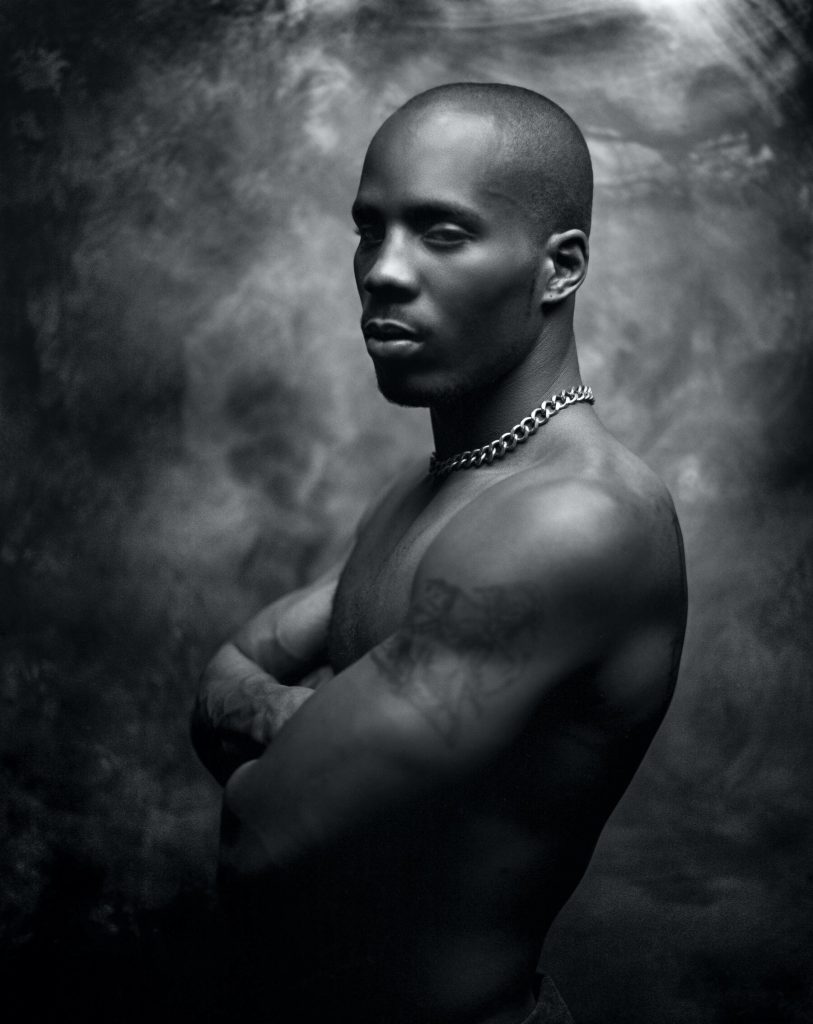Rap music is not a sin. The content of the lyrics determines its sinfulness.
Rap music, a modern popular genre that is known for its fast-paced rhythmic style, has gained a lot of attention lately. However, its content and morality have often been debated. Some argue that rap music promotes immoral behavior, while others believe that it is just music and should be enjoyed by everyone regardless of its content.
The question of whether rap music is a sin has been a topic of discussion among religious groups. This article explores the moral implications of rap music, the factors that determine its sinfulness, and the impact it can have on society. So, let’s dive in and examine if rap music is indeed a sin or not.

Credit: pitchfork.com
Analyzing Rap Music’S Relation To Morality And Faith
Exploring The Meaning Of Morality And Faith In The Hip-Hop Culture
Hip-hop culture has a unique way of interpreting morality and faith. The ideas of right and wrong, acceptable and taboo, differ from the traditional norms. Some key points to keep in mind are:
- Morality in hip-hop culture is often about survival, struggle, and injustice that the people face on a daily basis. It is a reflection of the experiences and reality of the artist’s and the audience’s lives.
- Faith in hip-hop culture is not limited to the traditional religious beliefs, but also encompasses the belief in oneself, community, and change. Artists often use their faith in their abilities to inspire and empower their listeners.
How Rap Music Interacts And Clashes With Traditional Religious Values
Rap music often deals with controversial topics such as violence, drugs, and sex. It is no secret that these topics go against some traditional religious values. Some key points to keep in mind while analyzing this topic are:
- The use of profanity and derogatory language can conflict with religious beliefs of respect and love towards one another.
- The glorification of violence and drug use can go against religious beliefs of non-violence and staying pure.
- The sexualization of women in rap music can conflict with religious beliefs regarding modesty and purity.
Examining The Role Of Morality And Faith In Rap Music Creators
Rap music creators often come from communities that face social, economic, and political injustices. As a result, their music reflects their perspectives on morality and faith. Here are some key points to keep in mind:
- Many rap music creators view themselves as agents of change who use their music to speak on political, social, and cultural injustices. This aligns with the traditional religious values of social justice and equality.
- Some rap music creators may express their faith in their lyrics, while others do not. However, their faith may still be reflected in the messages they convey, such as hope and empowerment.
- Some rap music creators may use their music to reflect on their past mistakes and express remorse. This aligns with religious values of repentance and forgiveness.
Understanding Different Perspectives On Rap Music
Overviewing The Various Perceptions On Rap Music And Its Impact On Society
Rap music has generated a lot of controversy due to its themes, lyrics, and messages. Some people consider it an art form, while others view it as nothing more than noise with a negative impact on society. However, there is a broad spectrum of opinions on rap music, including:
- For some, rap music is a means of self-expression, conveying their personal experiences, thoughts, and emotions, often touching on social issues such as poverty, racism, and police brutality.
- Others argue that rap music is a form of entertainment that should not be taken literally, where the themes and lyrics are exaggerated for the purpose of entertainment.
- Lastly, some people regard rap music as a genre that negatively influences young audiences, promoting misogyny, violence, drug abuse, and explicit language.
Examining The Arguments For And Against Rap Music As A Negative Influence
While many people enjoy listening to rap music, critics argue that certain aspects of the genre can lead to negative outcomes. Here are some of the arguments for and against rap music as a negative influence:
Against rap music:
- It promotes stereotypes, racism, and sexism.
- It glorifies violence, drug abuse, and criminal behavior.
- Its lyrics contain explicit language, and it sends a poor message to the youth, normalizing bad behaviors.
For rap music:
- It provides an avenue for individuals to express themselves and address social issues.
- It is a means of entertainment and is not meant to be taken literally.
- It can educate audiences about important social problems and encourage positive societal change.
Highlighting The Counter-Arguments To These Negative Perceptions
While some people feel that rap music sends a negative message, others argue that it is possible to interpret it in a positive light. Here are some counter-arguments against the negative perceptions of rap music:
- Rather than promoting stereotypes, some rappers use their platform to break them.
- Not all rap music celebrates violence or criminality. Some rappers discuss the harsh realities of life in impoverished inner-city areas to raise awareness and spark change.
- The use of explicit language in rap music is no different from the use of foul language in other forms of entertainment.
There is a broad spectrum of opinions on rap music, ranging from positive to negative. While it is important to engage in critical discussions about the messages and themes within rap music, it is also crucial not to dismiss it as a genre altogether.
Ultimately, how individuals interpret and engage with rap music is a personal choice.
The Power Of Rap Music And Its Effect On Individual Beliefs
The power of rap music and its effect on individual beliefs
Rap music has always been a topic of discussion among individuals of all ages and backgrounds. Some see it as a powerful medium of self-expression, while others view it as a menace to society. One of the most debatable stances regarding rap music is related to its impact on individual beliefs, particularly when it comes to morality and religious perceptions.
In this section, we will delve into the complexities of how rap music influences and affects the listeners’ thoughts and beliefs.
Understanding How Rap Music Can Influence Listeners’ Thinking Regarding Morality And Religious Beliefs
- Rap music often covers diverse themes such as love, struggle, social issues, and religion.
- The lyrics of rap songs can be very graphic, explicit, or sometimes even offensive.
- Depending on the listener’s beliefs, some rap songs may clash with their moral or religious values, leading them to perceive the song as sinful or inappropriate.
- The words, beats, and visuals of rap music can provoke emotions, stimulation, memories, and associations that can leave a lasting impact on the listener’s mind.
Examining The Impact Of Rap Music On The Way Some Individuals Perceive The World Around Them
- Rap music often addresses reality and expresses the artist’s personal life experiences, struggles, and beliefs, which can resonate with the audience and their perception of the world.
- The way individuals interpret rap music can affect the meanings they attach to everyday struggles, lifestyles, and values.
- Rap music has the power to influence how individuals act, dress, talk, and interact with others. It can normalize or glorify certain behaviors and actions and shape the individual’s personality and character.
The Complexities Of How Rap Music’S Influence And Impact Can Vary From One Person To Another
- The way each individual perceives, interprets, and understands rap music can differ depending on their personality, background, beliefs, and experiences.
- Some may enjoy rap music for its entertainment value, while others may connect with the message and identify with the artist’s experiences.
- The values and beliefs individuals hold can impact their perception and interpretation of rap music. For example, a religious individual may see rap music as sinful, while a non-religious individual may not perceive it that way.
- Listeners’ age, gender, culture, and social background can also affect the way they respond to and connect with rap music.
The power of rap music and its influence on individual beliefs is a subjective topic, and the impact can vary from one person to another. Understanding how rap music can influence listeners’ thinking regarding morality and religious beliefs, examining its impact on the way some individuals perceive the world around them and the complexities of how rap music’s influence and impact can vary from one person to another are crucial steps to comprehend its significance in our society today.
Frequently Asked Questions Of Is Rap Music A Sin
Is Rap Music A Sin In Christianity?
According to christianity, it is not a sin to listen to any genre of music. It is more important to ensure that the lyrics don’t promote violence, sexual promiscuity, or disrespectfulness.
What Does The Bible Say About Rap Music?
The bible doesn’t specifically mention rap music. However, it does warn against immoral and harmful behaviors. Thus, it is important to be cautious about the messages conveyed in rap lyrics.
Is Rap Music Harmful To Society?
Rap music can be harmful if it promotes negative behavior, such as violence and drug use. However, many artists also use their platform to spread awareness and positivity, making it important to evaluate each artist and song individually.
Conclusion
After careful examination and consideration, we can conclude that rap music is not inherently a sin. Like any art form, rap music can be used to express a variety of themes and messages, some of which may be inappropriate or even harmful.
However, to label an entire genre as sinful would be unfairly painting with broad strokes. It is up to individuals to discern and differentiate between the positive and negative aspects of rap music. As with any entertainment, it is important for listeners to be mindful of the lyrics and messages conveyed in rap songs.
But ultimately, it is up to personal choice and discretion to determine whether or not rap music aligns with one’s moral and ethical values. In short, rap music is not inherently sinful, but like anything in life, it can be used in both positive and negative ways.













